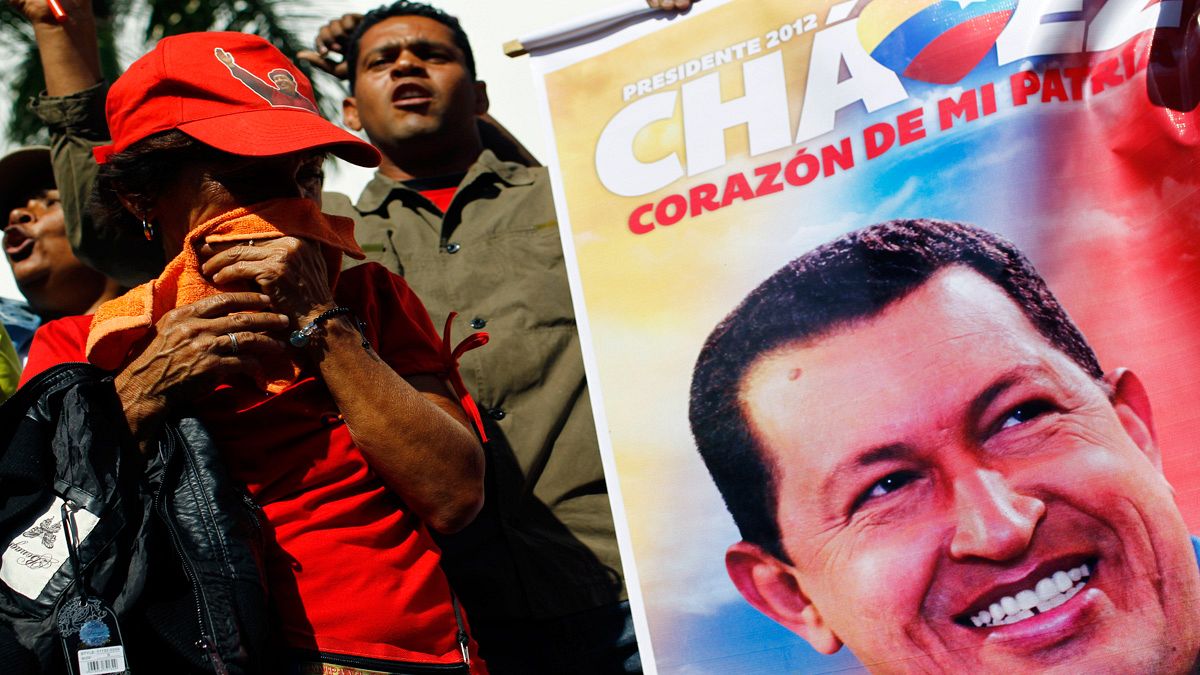Will the Hugo Chavez cult die out now that the charismatic president is dead?
His death has propelled Venezuela into a period of uncertainty before the new elections, which should be held within 30 days. So does this signal the end of an era, not only for Venezuela, but for the whole of South America?
His illness did not give Hugo Chavez the time to make a farewell speech, but last December he took care to organise the succession by naming Nicolás Maduro, vice president and interim president, as his choice to take over.
The forthcoming vote will see Nicolas Maduro competing against opposition leader Henrique Capriles, beaten by Chavez at the presidential elections in October 2012.
The late president leaves a mixed legacy. Oil reserves said to be the largest in the world allowed him to launch social programmes, to build new housing, to tackle illiteracy, and to reduce poverty very significantly.
But on the other hand, he leaves behind a disorganised economy, a decapitated national oil company, and inflation which looks set to top 29 percent this year.
A big question for Venezuela will be finding out who is to succeed Chavez, and whether that person will continue along his revolutionary path, of will try a different one.
One thing is sure, the influence of Hugo Chavez will shape Venezuelan politics and society for many years to come.
euronews: “We are talking to Teodoro Petkoff, the editor of the Tal Cual newspaper, one of the best known in Venezuela. We’re going to talk to him about the future of the country after the death of Hugo Chávez.
My first question is: despite a debatable economic balance sheet, Hugo Chávez won elections. (He won 13 out of 14 of elections). He was re-elected three times and at the end of his life, the day he died his popularity was enormous, nearly 70%. What explains this magic?”
Teodoro Petkoff: “Yes, he was a unique case in history, and we need to reflect on that. But in history there are numerous cases of political leaders who have created not only political links but also emotional and even loving links with the population. Things like this happen with certain characters, with particular personalities: a gift for oration, empathy, and even extravagance. And also in the case of Chavez there was also a sack full of dollars which allowed him to forge very strong emotional links with part of the country’s population; because Chávez was a divisive character. I mean he divided the country into two halves. One half loved him, with devotion even, and the other half hated him.”
euronews: “What was Hugo Chavez’s greatest success, and what was his biggest failure?”
Teodoro Petkoff: “Chávez succeeded is making the end of poverty a national project. But his greatest failure? Well, after 14 years we still have that poverty. He succeeded in reducing critical poverty, which touched around half the population. But general poverty is still daily life for 60% of Venezuelans.”
euronews: “The cult of Peron outlived the man himself. And the cult of Castro is still alive in Cuba even though Castro has retired. Can the Chavez cult outlive Chavez?”
Teodoro Petkoff: “Perón was much more popular than Chavez. But also Perón constructed a political movement, a doctrine, and way of thinking politically and ideologically. In contrast, with Chavez there was only Chavez. And surrounding him is only mediocrity and opacity. And that’s not an accident: Chávez was the sort of leader who couldn’t stand anyone around him shining. But also, he constructed a political party without a single new thought.”
euronews: “The death of Chávez leaves an empty space in Bolivar. Who could fill it? Cristina de Kirchner, Morales, Correa?”
Teodoro Petkoff: “I don’t think there’s another Latin American candidate. Partly because they don’t have the economic means which Chavez had, which allowed him to buy friends all other place. Also, none of them has the vocation to lead an entire continent. Chávez felt that Venezuela was too small for him because he felt that he was the rightful heir to Simon Bolívar. He felt he had to act, as Simon Bolívar did, at the level of the entire continent.”
